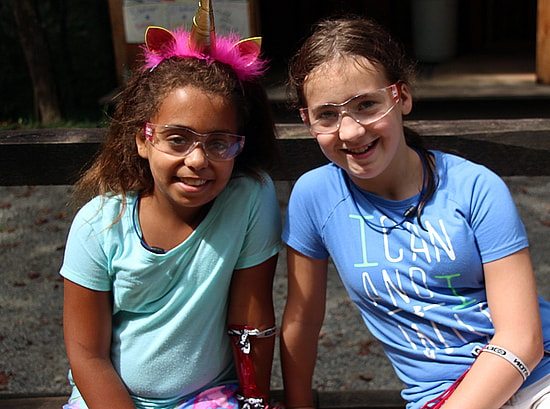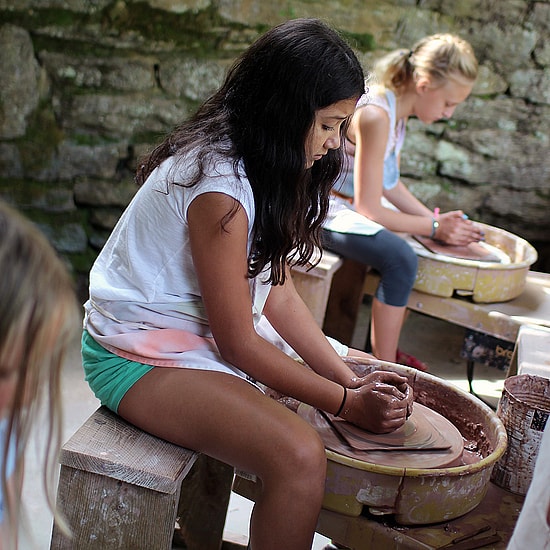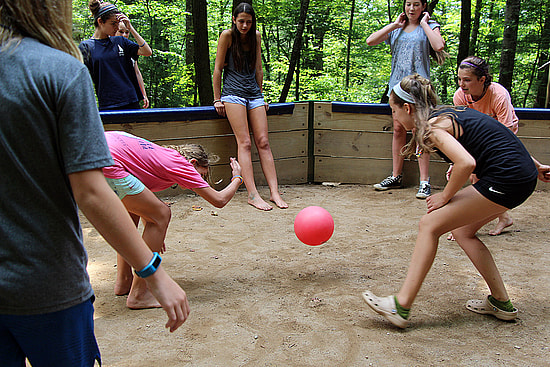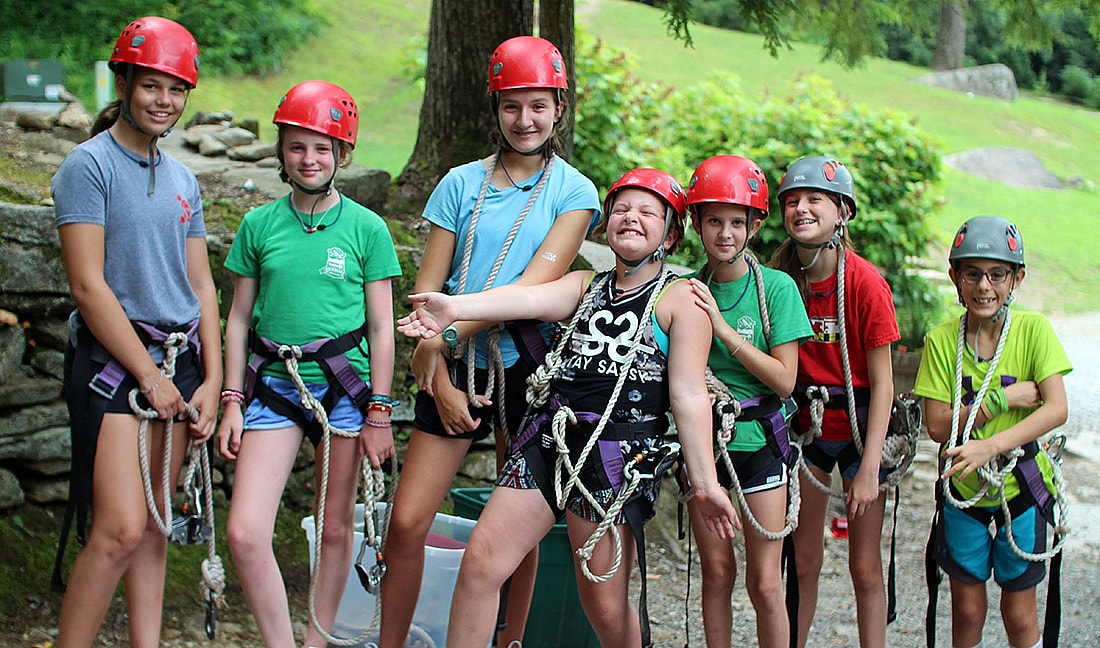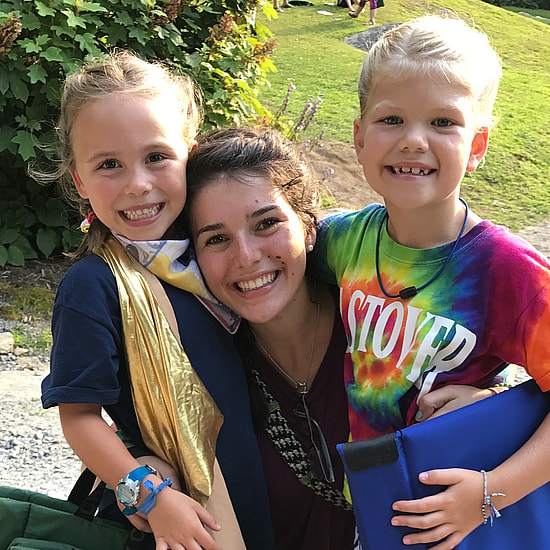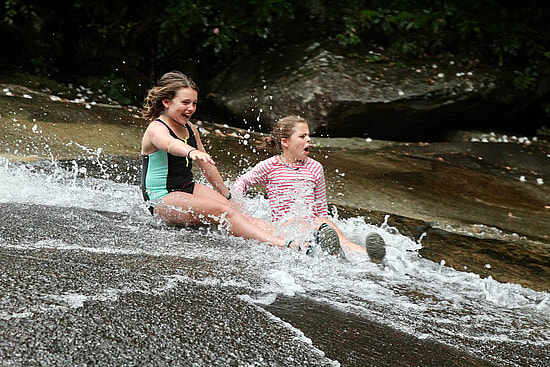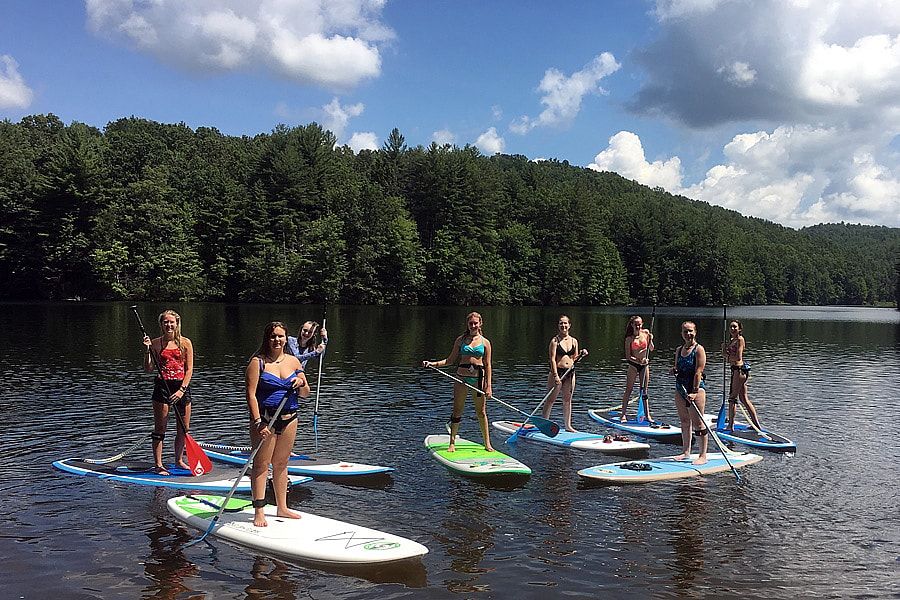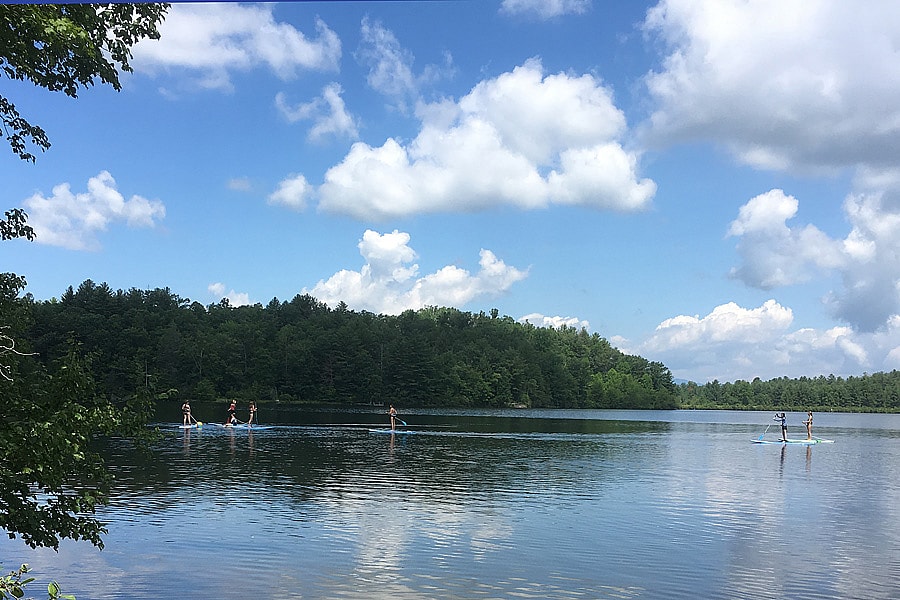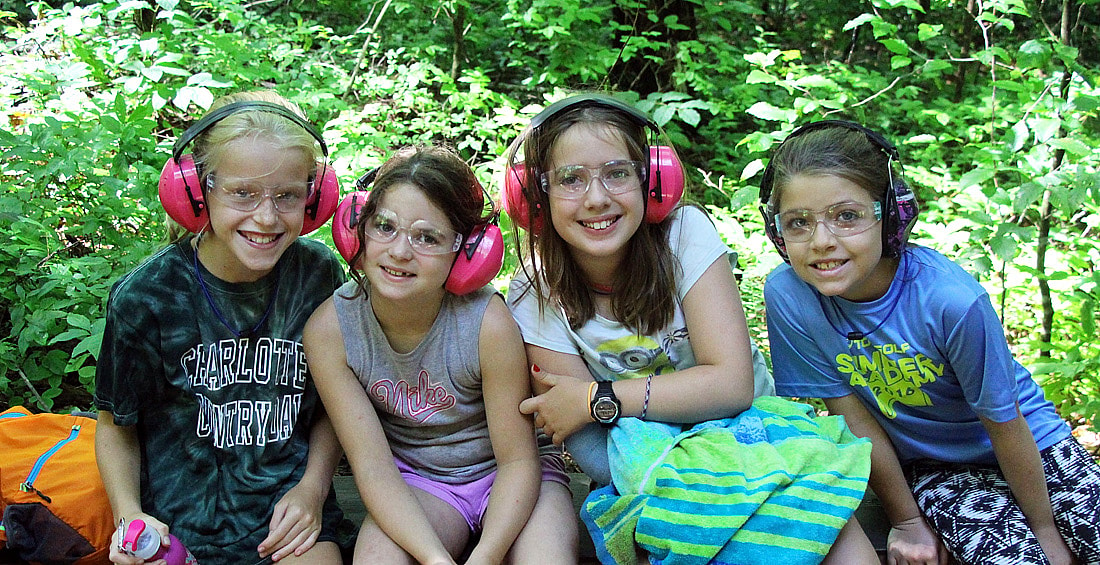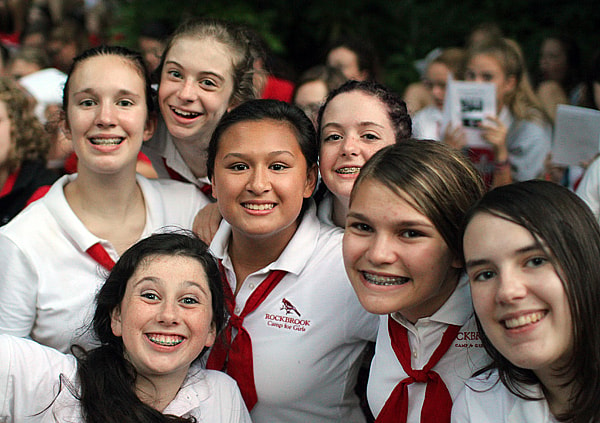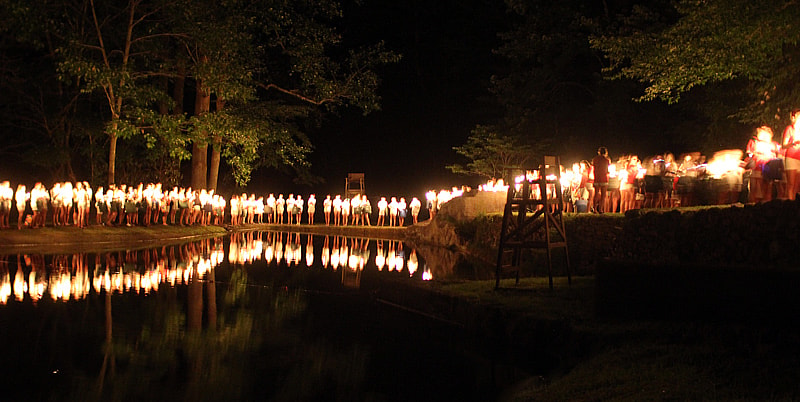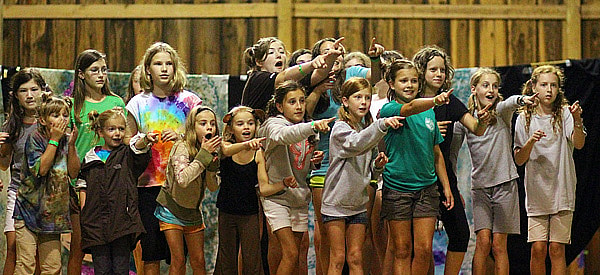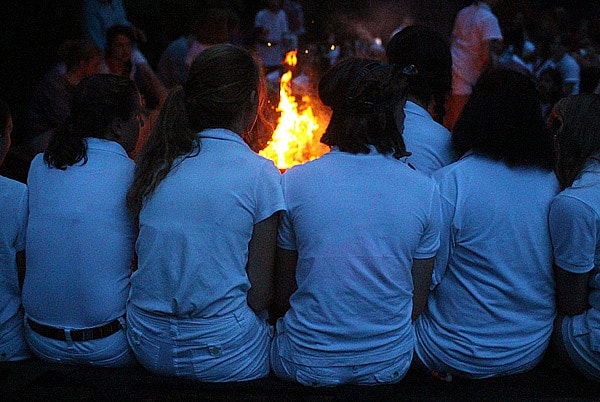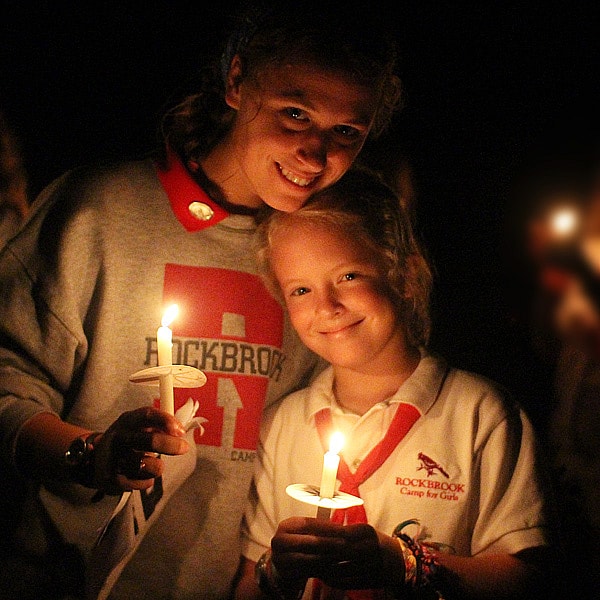Today I had an interesting conversation with one of our staff Education Interns about the different ways she saw life at camp supporting the social and emotional needs of the girls here. New to Rockbrook this summer (She is not a former camper or counselor.), she has been struck by how most everyone at camp has such an easy going attitude, happily engaging the different camp activities, but also content to just be at Rockbrook, no matter what the day would bring. The girls sign up for their own set of activities, but they don’t seem too obsessed with doing any particular thing. Sure there are accomplishments to strive toward— bullseyes in archery and riflery, reaching the top of the Alpine Tower while blind folded, throwing a pot on the potters wheel, making a powerful overhand serve in tennis, weaving a particular shaped basket, for example —and there are favorite trips to join (like rafting), but it almost seems like the girls could be doing anything and still tell you “I love camp.” She said, “It just feels good to be here,” no matter what we’re doing.
Being someone interested in Social Emotional Learning (SEL), she explained this feeling in those terms. She said Rockbrook’s “friendly community helps girls improve their relationship skills and be more self aware.” It’s true; “how we define our community is key to how it feels to be here,” I added. We agreed that being a part of a “relationship-based community” like Rockbrook, one dedicated to the core values of kindness, caring and generosity, is what “feels good.” The community provides an important context, one that fulfills our social and emotional needs, and hence is magically gratifying (what the girls will call “fun”) no matter what we’re doing.
This is exactly the point of this internship. We believe children at camp can learn to “respond to emotional triggers, engage with diversity, manage conflict, and make responsible decisions” when they join a community like Rockbrook. Our daily experience provides opportunities to practice “self-awareness, self-management, social-awareness, and relationship skills.” Life at camp is ripe with moments where these skills are exercised.
We also talked about why girls are so “loyal to Rockbrook,” why they so often want to return to camp summer after summer. Here too, we pointed to the easy feeling of being at camp, the authentic relationships of friendship we have here, and ultimately to the special community where we know we belong. Again, it’s not so much what they get to do, the crafts or adventure for example, that makes the girls yearn to return. It’s the social and emotional context that encourages the deep relationships with the other people at camp. We could change many of Rockbrook’s activity offerings and I suspect most girls would still love camp and still say it’s “fun.”
Lastly, we talked about how we might integrate aspects of camp life in the outside world, say in an elementary school classroom, so as to enhance SEL. Integrating SEL into educational settings is a thriving area of study, but from our experience at camp, we thought it crucial to begin with a culture of kindness, to build a collaborative community that encourages empathy, decision making, and belonging. Taking time to establish this kind of community, we thought, could be crucial for learning, just as it’s the foundation of what makes camp a place girls love.
Once again we were reminded of the power of camp. In these ways, it is educational in the best sense of the word, more so even than most traditional school settings. I find it remarkable too that kids love this kind of learning. They yearn for it. They need it. And fortunately for your Rockbrook girls, they have it.







